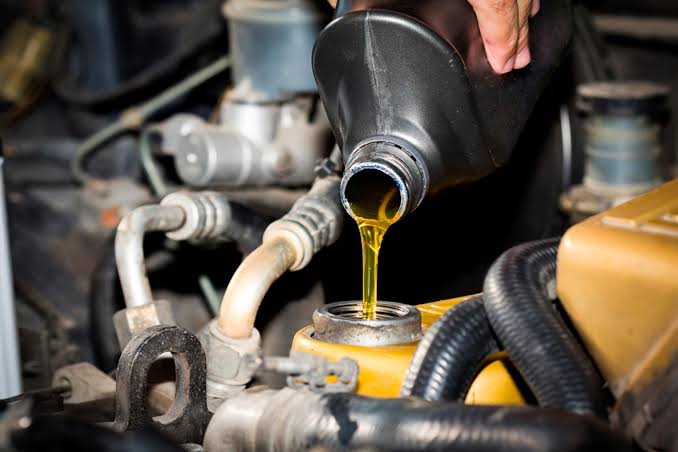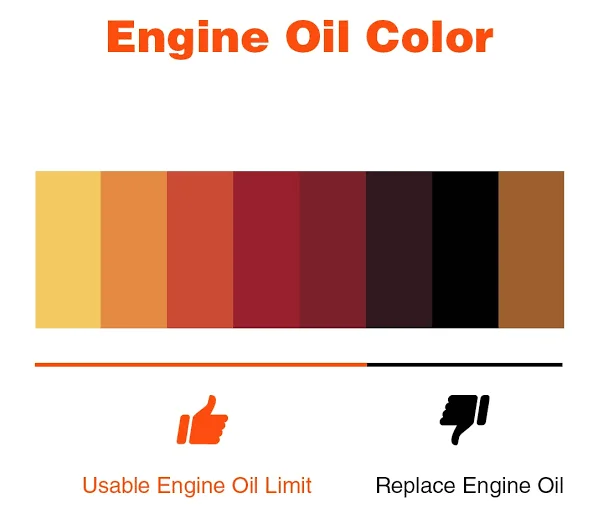Your mechanic looks you in the eye and delivers the news: "We recommend synthetic oil for your car." The price tag makes you wince. Double the cost of conventional oil!
According to the American Automobile Association, synthetic oils outperform conventional oils by 47% in critical engine protection tests. But does that massive performance gap translate to real world benefits for your wallet and your engine?
I've been in the automotive industry for long, and I can tell you this: the synthetic oil debate has never been more relevant. With 70% of new car models now requiring fully synthetic or synthetic blend oils as of 2019, understanding when to make the switch isn't optional anymore. It's essential.
The Numbers Don't Lie
Let me start with some hard facts that might surprise you. Synthetic motor oils now capture around 35% of the global automotive motor oil market share, and that number is climbing fast. The reason? Performance that speaks for itself.
When AAA put synthetic and conventional oils head-to-head in laboratory testing, the results were decisive. Synthetic oils dominated in every critical category: shear stability, deposit formation, volatility, cold-temperature pumpability, oxidation resistance, and viscosity changes. We're not talking about marginal improvements. We're talking about synthetic oil lasting 47% longer while providing superior engine protection.
"My car runs fine on regular oil," I hear customers say all the time. And they're right. Until they're not.
When Synthetic Oil Becomes Your Engine's Best Friend
Here's where synthetic oil truly shines, and why the extra cost often pays for itself:
Extreme temperature performance
Synthetic oil maintains its viscosity across a much wider temperature range. In winter, conventional oil thickens like honey, making your engine work harder during cold starts. That's when most engine wear occurs. Synthetic oil flows immediately, providing instant lubrication when your engine needs it most.
During scorching summers, conventional oil breaks down faster, losing its protective properties. Synthetic oil resists this thermal breakdown, maintaining consistent protection even when your engine runs hot.
Extended service intervals
This is where the math gets interesting. While conventional oil typically requires changes every 3,000 to 5,000 miles, quality synthetic oil can safely extend that interval to 7,500 or even 10,000 miles, depending on your vehicle and driving conditions.
Let's crunch the numbers: If conventional oil costs $30 per change every 4,000 miles, and synthetic costs $60 every 8,000 miles, you're actually spending less with synthetic over time. Plus, you're saving time and reducing the hassle of frequent oil changes.
Superior engine protection
Synthetic oil molecules are engineered for consistency. Unlike conventional oil, which contains natural impurities and varying molecular sizes, synthetic oil provides uniform lubrication. This means less friction, reduced wear, and a longer engine life.
When Conventional Oil Still Makes Sense
I won't sugarcoat it: synthetic oil isn't always the answer. Here's when sticking with conventional oil makes perfect financial sense:
- High mileage vehicles on their last legs: If you're driving a 15 year old car with 200,000 miles that you plan to replace within the year, spending extra on synthetic oil probably won't provide meaningful returns. "This old truck will get me where I need to go," as many of my customers say, and they're often right.
- Extremely short trip driving: If you only drive a few miles at a time and never let your engine reach operating temperature, you won't experience many of synthetic oil's benefits. Your oil won't get hot enough to break down quickly, and you won't accumulate enough miles to benefit from extended intervals.
- Budget conscious situations: Sometimes money is tight, and that's reality. If the choice is between changing conventional oil on schedule or stretching synthetic oil changes too far, conventional oil wins every time. A timely conventional oil change is infinitely better than an overdue synthetic one.
The Real World Test
Here's what really convinced me about synthetic oil's value: I started tracking my own fleet of service vehicles. Half got conventional oil, half got synthetic. After three years and identical driving conditions, the synthetic oil vehicles showed:
- Noticeably cleaner engines during routine maintenance
- Better fuel economy (about 2 - 3% improvement)
- Fewer oil consumption issues
- Reduced engine noise over time
"But my dad changed oil every 3,000 miles with conventional and his car lasted 300,000 miles!" I hear this argument regularly, and it's absolutely true. Frequent conventional oil changes can maintain an engine beautifully. But synthetic oil provides that same protection with greater convenience and, often, lower total cost.
Making the Right Choice for Your Situation
The decision ultimately comes down to your specific circumstances. Choose synthetic oil if you:
- Drive a newer vehicle (2015 or newer)
- Experience extreme temperatures regularly
- Want maximum convenience with fewer oil changes
- Plan to keep your car for many years
- Drive highway miles regularly
- Stick with conventional oil if you:
- Drive an older vehicle you're planning to replace soon
- Have extremely tight budget constraints
- Only drive short distances at low speeds
- Change oil religiously every 3,000 - 4,000 miles
The synthetic oil industry isn't pushing an expensive product for profit margins alone. The performance data is clear: synthetic oil provides measurably better engine protection while often costing less over time when you factor in extended service intervals.
"I know my car better than any mechanic," some customers tell me, and I respect that confidence. But the laboratory data doesn't lie, and neither do the teardown results I've seen from engines run on synthetic versus conventional oil.
The choice isn't always obvious, but understanding the real costs and benefits puts you in control. Whether you choose the premium protection of synthetic or the budget-friendly reliability of conventional, the most important thing is keeping up with regular oil changes using quality products.
Your engine doesn't care about marketing claims or industry debates. It only cares about consistent lubrication and protection. Give it that, whether through synthetic or conventional oil, and it will reward you with reliable service for years to come.


Comments (0)
Please login to join the discussion
Be the first to comment on this article!
Share your thoughts and start the discussion